
The Ukrainian President will deliver a virtual address to US lawmakers as fighting around the capital intensifies

Russian prisoners of war speak of low morale and shame at “crimes” committed in Ukraine
From CNN’s Tim Lister and Sebastian Shukla
“I want to tell our commander-in-chief to stop terror acts in Ukraine because when we come back we’ll rise against him.”
The crimes that we committed; we all will be judged.”
These are the voices of Russian prisoners of war now held by Ukraine.
Nearly a dozen have appeared in news conferences held by the Ukrainian authorities, just a few of the 600 that Ukrainian President Volodymyr Zelensky says have been captured.
Their public appearances may be questionable under the Geneva Conventions, which forbid states from causing unnecessary humiliation to prisoners of war. And it is possible that they felt pressure to express views sympathetic to those of their captors.
But three captured Russian air force pilots who spoke to CNN did not suggest they were speaking under duress, and their words appear to chime with other Russian prisoners of war speaking following their captures — that this is not a war they want to be fighting.
CNN’s interview with the three Russian captives revealed that they had deep disquiet about their mission and the suffering of Ukrainian civilians, while they also had harsh words for their commander-in-chief, Russian President Vladimir Putin.
Read the full story here:
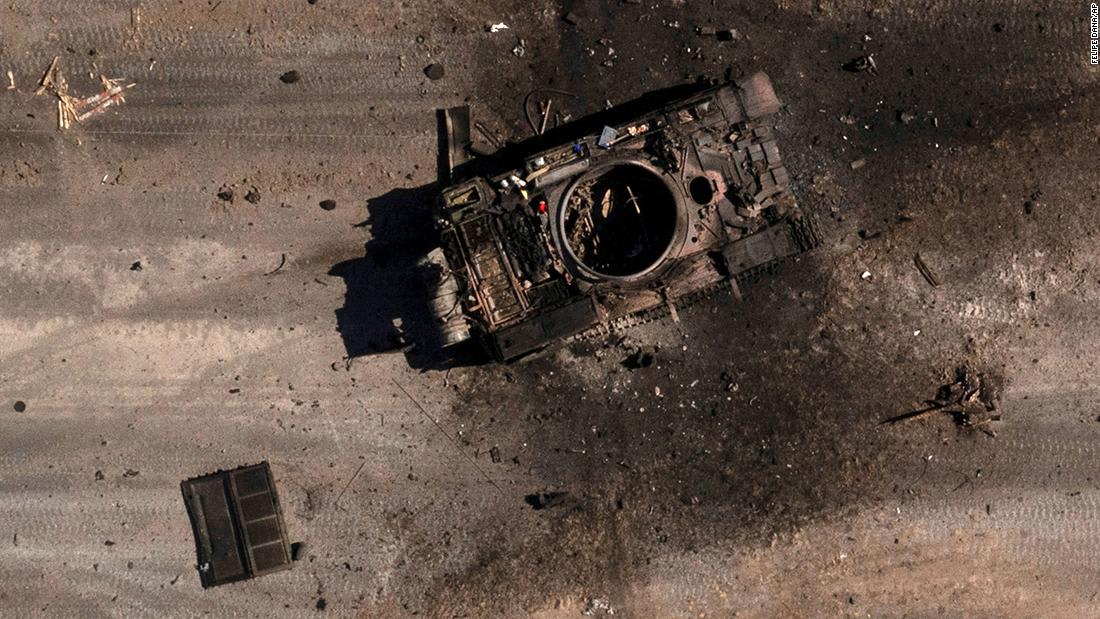
Zelensky will deliver remarks virtually to members of the US Congress. Here’s what to expect
From CNN’s Clare Foran
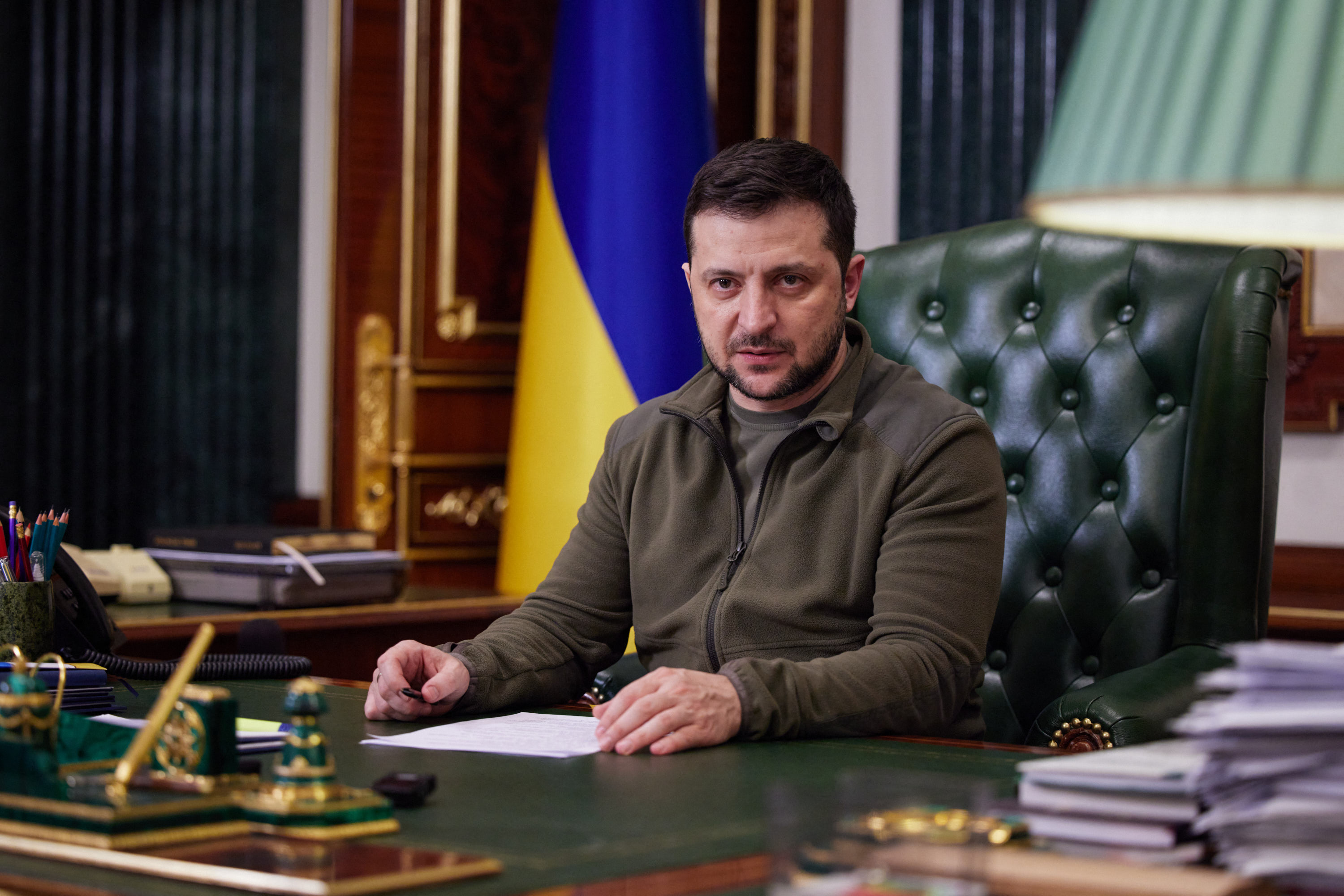
Ukrainian President Volodymyr Zelensky will deliver a virtual address Wednesday to members of Congress.
It comes amid Russia’s ongoing unprovoked and deadly invasion of Ukraine and as Kyiv presses the United States for more assistance in its defense.
“As war rages on in Ukraine, it is with great respect and admiration for the Ukrainian people that we invite all Members of the House and Senate to attend a Virtual Address to the United States Congress delivered by President Volodymyr Zelenskyy of Ukraine on Wednesday, March 16th at 9:00 a.m,” Pelosi and Schumer wrote in a letter to members.
There is widespread bipartisan support among US lawmakers for aid to Ukraine, and just last week Congress approved an emergency aid package with $13.6 billion in humanitarian, defensive and economic assistance to the embattled country.
In addition to that, Zelensky recently pressed President Joe Biden during their latest call for more sanctions to further squeeze Russia, CNN has learned.
What Zelensky wants: According to multiple sources familiar with the call, Zelensky specifically asked Biden for further efforts to cut off Russia from international trade and to continue targeting the Russian elite, as the US has continued to add more oligarchs and their families to its sanctions list. Zelensky also mentioned closing off Russia’s access to international waterways during the call.
In their letter to lawmakers, Pelosi and Schumer reaffirmed US support for Ukraine amid the war.
“The Congress remains unwavering in our commitment to supporting Ukraine as they face (Russian President Vladimir) Putin’s cruel and diabolical aggression, and to passing legislation to cripple and isolate the Russian economy as well as deliver humanitarian, security and economic assistance to Ukraine,” they wrote.
“We look forward to the privilege of welcoming President Zelenskyy’s address to the House and Senate and to convey our support to the people of Ukraine as they bravely defend democracy,” the two top congressional Democrats said.
CNN’s Kaitlan Collins, Annie Grayer and Manu Raju contributed to this report.
Poland’s deputy prime minister calls for international peacekeeping mission in Ukraine
From CNN’s Antonia Mortenson and James Frater
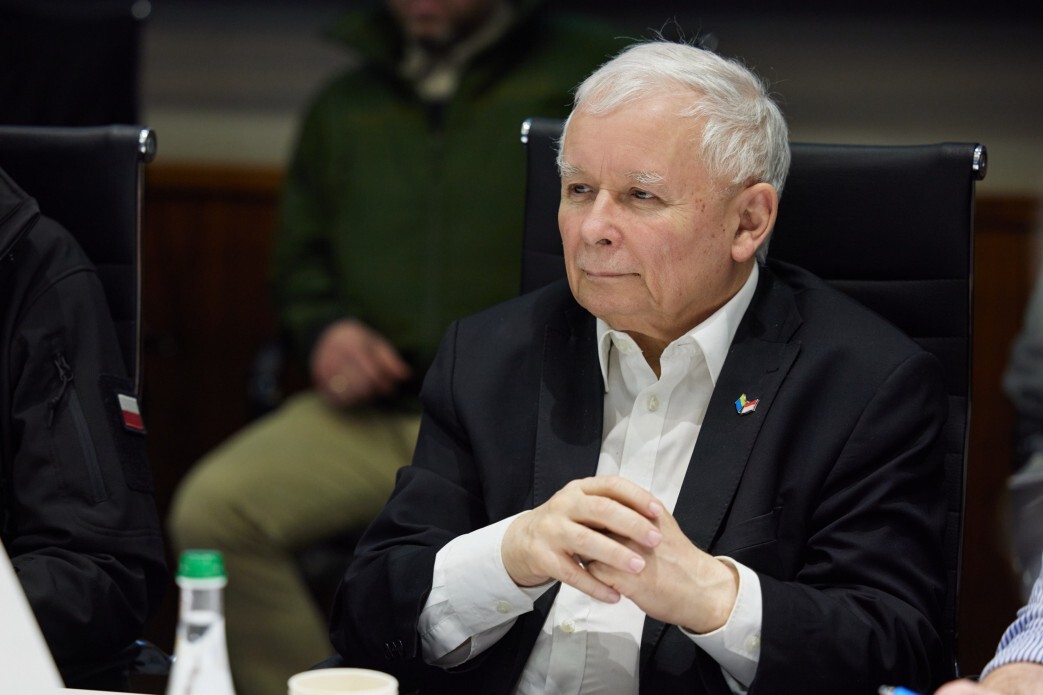
Poland’s Deputy Prime Minister Jaroslaw Kaczynski has called for an international peacekeeping mission to be sent to Ukraine following a meeting Tuesday with the leaders of Poland, Slovenia, the Czech Republic and Ukraine in Kyiv.
“I believe that a NATO peace mission or a wider international treaty mission is needed, which will be able to defend itself and which will operate in Ukraine,” Kaczynski said, according to the Polish Prime Minister’s office. “I would like to refer to the consciences of European leaders, to the principles they proclaim, because Ukraine needs help.”
On Wednesday, NATO’s defense ministers meet in Brussels.
As he arrived at NATO’s headquarters in the Belgian capital Wednesday, British Defense Minister Ben Wallace said while details must be looked at before a decision can be made on peacekeeping forces, “we have to continue to show — in action — our support to Ukraine and its freedoms and not just talk.”
More than 3,000 cars from besieged Mariupol arrive in Zaporizhzhia
From CNN’s Yulia Kesaieva in Lviv
More than 3,000 cars transporting evacuees from the besieged Ukrainian city of Mariupol have arrived in Zaporizhzhia, the head of the regional administration, Oleksandr Starukh, said on his Telegram channel.
Among the arrivals given shelter in the city were 772 children, he said.
Tuesday saw a significant increase in the number of cars able to make it out of Mariupol, which has been bombarded by Russian forces since March 1.
The city council advised residents looking to leave to travel west along the coast to Mangush and Berdyansk and then continue northwest to Tokmak, Vasylivka and Zaporizhzhia.
Zaporizhzhia attacked: Separately, Starukh said Russian forces had targeted two sites in Zaporizhzhia, including the city’s railway station. He said these were the first civilian sites to be hit in the city, but there were no reports of any casualties.
At least 2 people injured in shelling of Kyiv residential building, emergency services say
From CNN’s Yulia Kesaieva in Lviv
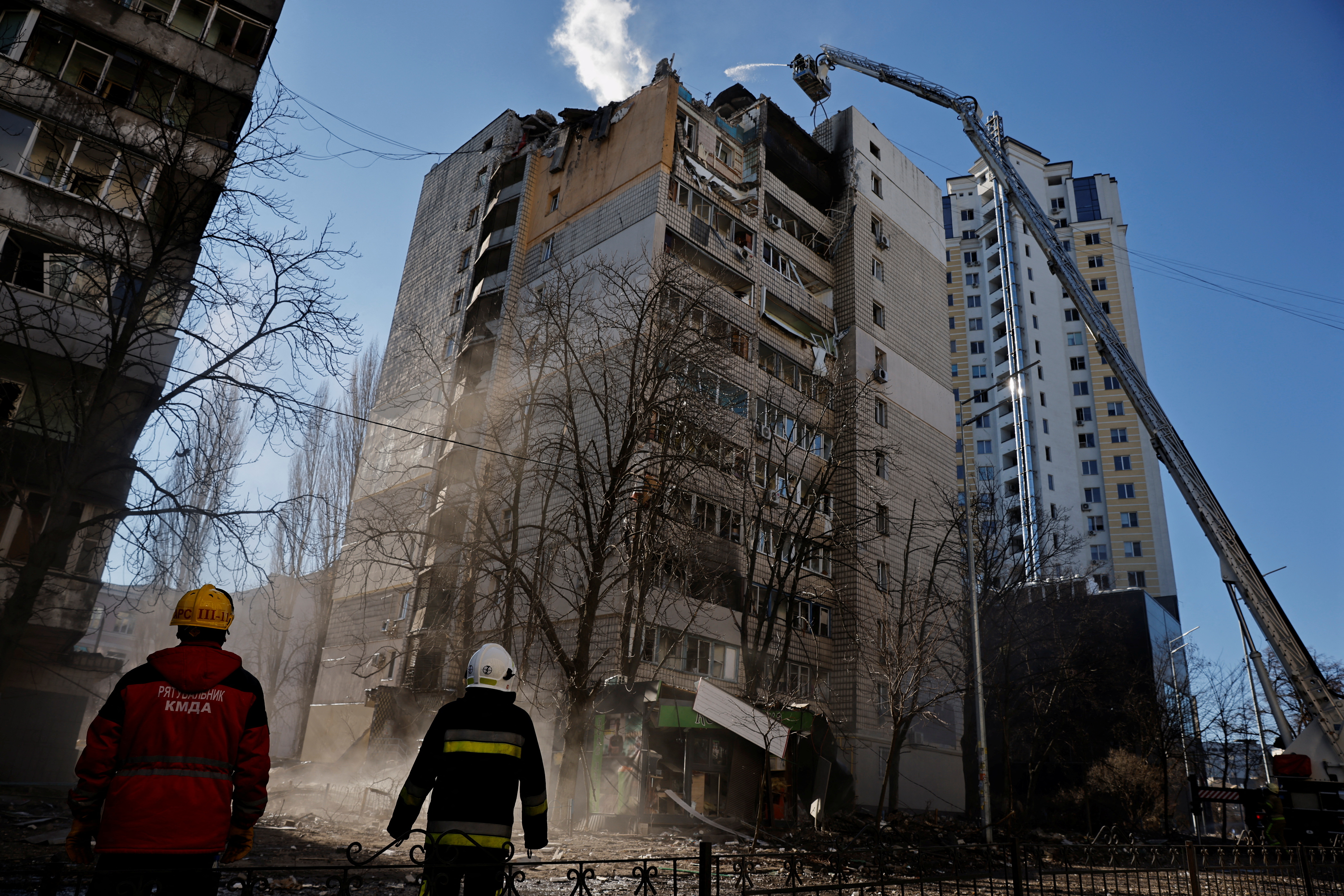
A 12-story residential building near central Kyiv was hit by Russian shelling early Wednesday, setting off fires on several floors, according to a statement from Ukraine’s state emergency services.
The building in Shevchenkivskyi district is located just a few kilometers from the center of the Ukrainian capital.
Initial information indicated two people were injured in the shelling. Rescue workers evacuated 37 people from the building, the statement said.
A neighboring nine-story building was also damaged in the attack, the statement added.
“Mariupol is now just hell”: What to know about the deteriorating situation in the Ukrainian city
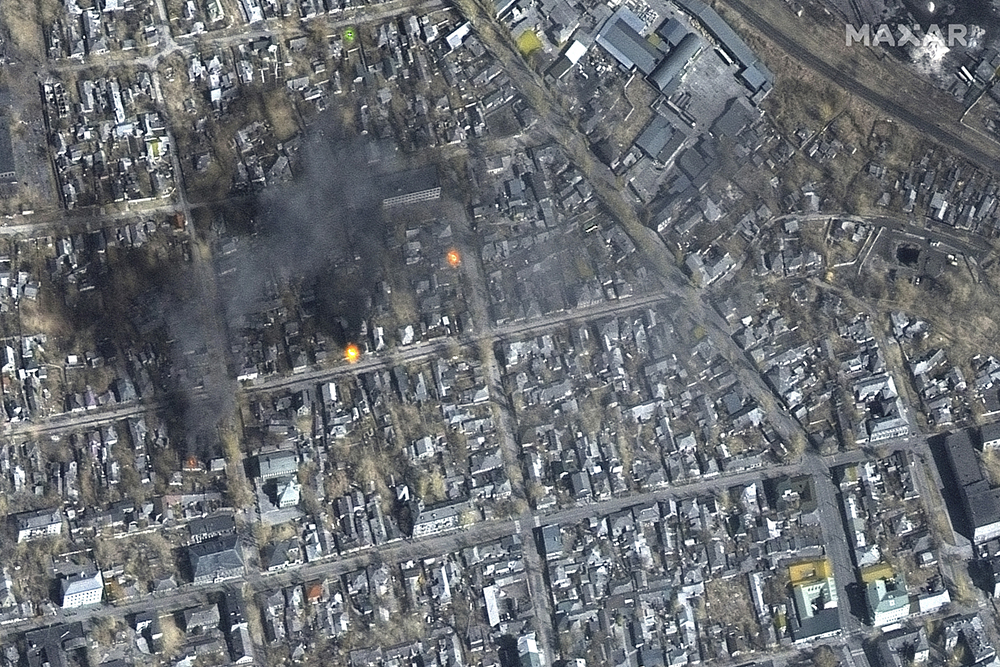
Conditions in Mariupol are “unbearable” and “just hell,” residents who fled the besieged city in southeastern Ukraine told CNN, as shocking drone footage and satellite photos show the utter devastation wrought by the Russian bombardment.
Here’s what we know about the situation:
- Hospital captives allegations: Doctors and patients were being held against their will in the Mariupol regional intensive care hospital, said Pavlo Kyrylenko, head of the Donetsk regional administration. Kyrylenko said a hospital employee told him staff and patients were staying in the basement, where the sick and injured continued to be treated. “It is impossible to get out of the hospital. They shoot hard, we sit in the basement. Cars have not been able to drive to the hospital for two days. High-rise buildings around us are burning … the Russians have rushed 400 people from neighboring buildings to our hospital. We can’t leave,” Kyrylenko said, quoting the employee. Sergei Orlov, deputy mayor of Mariupol, also said the hospital was occupied by Russian troops, who used doctors and patients as captives. “We do not have any access to them,” he said.
- City’s destruction: Orlov said Russian forces are “destroying” Mariupol with regular attacks. “Yesterday, we counted 22 aircraft which were bombing our city, and at least 100 bombs they used to bomb our city. The damage is awful,” he said Tuesday. Satellite images from Maxar Technologies Monday show the extent of the damage, including homes smoldering after apparently suffering Russian strikes, a destroyed apartment complex and rising plumes of thick smoke.
- Trapped residents: About 350,000 people are trapped in Mariupol and as many as 2,500 civilians have died, Ukrainian officials estimate. Those who remain are without electricity, water and heat. One woman who managed to escape said she had spent two weeks in a basement with about 60 others, and only left occasionally to retrieve items from her apartment. Another woman said she let 17 people shelter in her house after their homes were destroyed, and cooked soup in her garden using rainwater. She described shells flying overhead “around the clock.”
- Evacuations: For weeks, there has been a failure to formally establish safe corridors to evacuate civilians from Mariupol, which has been besieged since March 1. However, Ukraine’s deputy prime minister said about 20,000 people managed to leave Tuesday.
Read more about Mariupol here.
Analysis: Zelensky to appeal to Americans as Russia intensifies bombardments
Analysis from CNN’s Stephen Collinson
Rarely in modern times has a political leader matched his moment so bravely.
But a tangible note of desperation is now lacing Ukrainian President Volodymyr Zelensky’s inspirational rhetoric as he pleads for a more direct Western intervention to save Ukraine as merciless Russian President Vladimir Putin’s troops lay waste to cities and bombard civilians.
The measures the warrior President says his country needs to survive — like NATO-enforced no-fly zones and Soviet-era jets from ex-Warsaw Pact states that are now part of the West — are seen by the Biden administration as a step too far because they could drag the US into a dangerous escalation with its nuclear-armed rival.
Zelensky’s heartrending daily appeals, alongside the horrifying images of civilian casualties, are making it impossible to ignore the torment of Ukraine and its people.
If the worst happens and he ends up being killed and Ukraine falls, addresses like the one to US lawmakers will stand as an indictment of Putin’s barbarism and of a global system that was unable to stop it.
Read the full analysis:
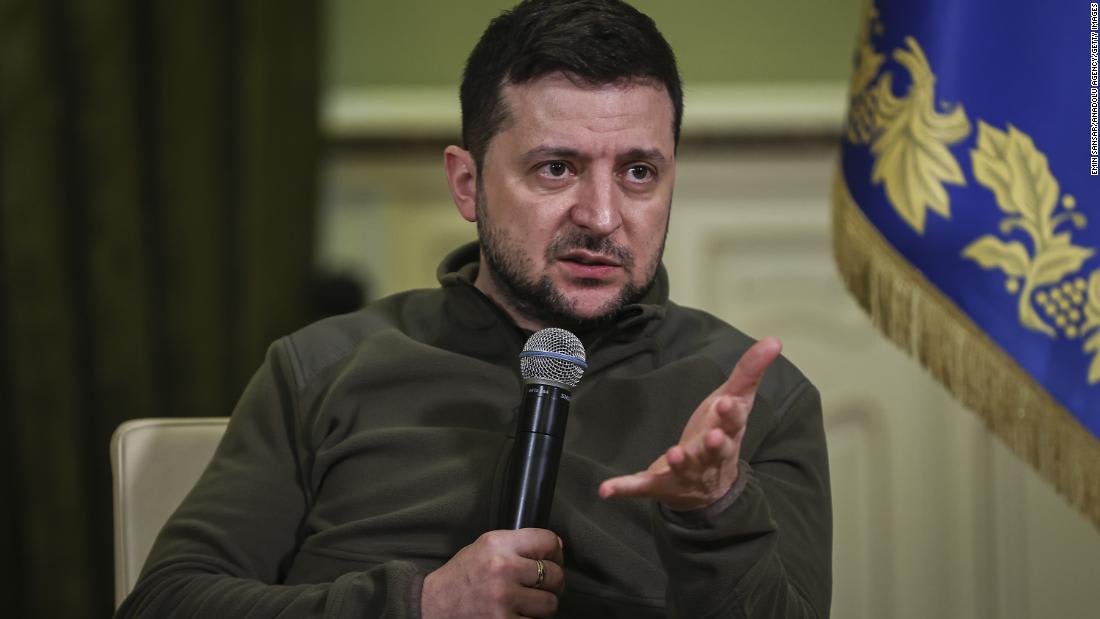
Pakistan sends emergency aid to Ukraine
From CNN’s Sophia Saifi in Islamabad, Pakistan
Pakistan sent two C-130 planes of humanitarian assistance to Ukraine Tuesday night, according to Pakistani foreign minister Shah Mehmood Qureshi.
Speaking at Noor Khan Airbase in the Pakistani capital as the planes departed, Qureshi said the aid was sent at the request of the Ukrainian Embassy in Islamabad.
The aid includes tents, blankets, sleeping bags, generators, soap, hand wash, medicine and canned food.
Pakistan “wishes for the situation to settle down through dialogue and diplomacy,” Qureshi said, adding the aid is being sent on the basis of Pakistan’s “long history of good relations with Ukraine.”
Some context: Pakistan has not condemned the Russian invasion of Ukraine — abstaining from a vote of the UN General Assembly on March 2.
Pakistan’s United Nations ambassador Munir Akram said at the time the country was “deeply concerned” by the war in Ukraine and “repeatedly stressed the need for de-escalation, renewed negotiations.”
The heads of various foreign missions in Pakistan — including the EU, the US, the UK, Norway and Japan — previously issued a joint letter urging Islamabad to condemn Russia’s invasion.
Analysis: Nordic countries wonder if they are next on Putin’s list
Analysis from CNN’s Luke McGee
Russian President Vladimir Putin’s full-scale invasion of Ukraine has done more to unify Western Europe than almost any event since the end of World War II.
Nations that were neutral have provided arms for Ukrainians; governments that had for years missed their NATO defense spending obligations have made spectacular U-turns; and countries that had deep economic ties to Russia have gone further in breaking the link than anyone had seriously envisaged little over a month ago.
The fate of the three Nordic nations that sit on the Scandinavian Peninsula — Norway, Sweden and Finland — has been brought into sharp focus by the crisis due to their unique relationship with each other, the rest of Europe and Russia.
- Both Norway and Finland share land borders with Russia, though Norway’s is significantly smaller at under 124 miles (200 kilometers), compared to Finland’s 800-mile frontier.
- Norway, the Western-most of the three, is a member of NATO but is not in the European Union, while Finland and Sweden are in the EU, but not in NATO.
- All three have historically supported a non-confrontational approach to Russia since the breakup of the Soviet Union due to their proximity.
- All three are also members of the EU’s Schengen area, meaning there is borderless travel between the three countries.
It’s these last two facts that have played a significant role in the major rethink of European security over the past three weeks: How can you have a policy of non-confrontation when you also simultaneously share an open land mass with Russia?
But that policy appears to be changing: Active conversations, once viewed by Sweden and Finland as a risky act of provocation against Russia, are now taking place in both countries about joining NATO. And, along with their neighbor Norway, both are throwing non-confrontation out the window.
“Finland and Sweden suddenly breaking long-held position(s) not to export arms to war zones and sending supplies to Ukraine has been the biggest shock for Europeans in terms of the Nordic response — and I suspect for Putin,” said Charly Salonius-Pasternak, a leading researcher in global security at the Finnish Institute of International Affairs.
Read the full analysis here.
Source: https://www.cnn.com/europe/live-news/ukraine-russia-putin-news-03-16-22/index.html
















